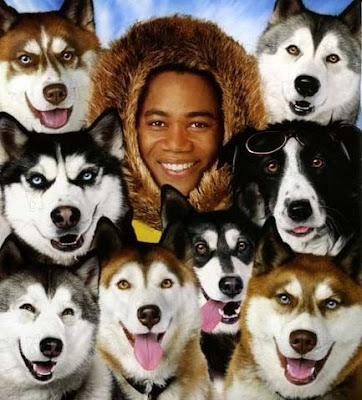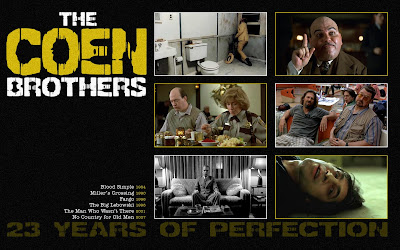Note: If you are a fan of both Scriptshadow and the Coen Brothers, I highly advise you not read the following review. There is a good chance you will never want to read Scriptshadow again. Please, I’m begging you, turn back now. You will hate me. As a result you will leave. Which means you won’t benefit from the future reviews and scripts that appear on the site. I know it’s tempting but I’m doing this for your own protection……..Still here? Okay, I warned you.
Genre: Drama
Premise: An American gunner for a B-29 bomber squad crash lands in Tokyo during World 2 and must find a way to escape alive.
About: This finished number 20 on the Scriptshadow Reader Top 25 List, which is pretty impressive when you consider it hadn’t been officially mentioned on the site. Joel and Ethan Coen adapted the novel over a decade ago, and many consider it to be one of the best screenplays not yet produced. James Dickey, who wrote the novel the script was adapted from, also wrote “Deliverance.”
Writers: Joel and Ethan Coen (based on the novel by James Dickey)
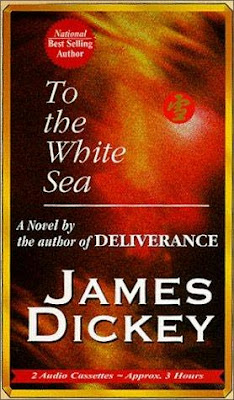
Remember the large group of friends you used to hang out with in high school and college? For the most part, everybody got along. Being in a large group of people who just “get you” is probably one of the safest most comforting feelings you can have in life. But in those groups, there’s always that one person, that one guy or girl you just don’t see eye to eye with. Both of you know it. Both of you do your best to work around it. But because there is absolutely zero crossover in your interests, zero crossover in your sense of humor, because there seemingly isn’t a single thing in life that the two of you agree on, all you can do is tolerate each other and not let your dislike of one another screw up the group dynamic.
That person for me was Eli. I hated Eli. And it was clear he didn’t like me either. I couldn’t even tell you the reasons why I didn’t like Eli. He was just one of those people that rubbed you the wrong way. So deep was our dislike for each other, that if ever a segment of the group couldn’t make it somewhere, I’d have to check to see how many others were coming. If it was five people and Eli, I could handle it. But once it got down to four or three? Which meant Eli and I would actually have to talk? No thank you. I was out. And I’m certain he did the same. Over time, Eli and I basically became experts at hating each other.
Well when you go off into the real world and grow up a bit, you look back at things and you think, “Maybe I could’ve approached that better.” “Maybe I helped contribute to the misunderstandings just as much as he did.” You gain some perspective, and wish you would’ve tried harder.
So a couple of years out of college and a good six years since I’d last seen Eli, I flew in for one of my friends’ bachelor parties. The whole group was back together again, and there was Eli, grown up, matured, nice, a seemingly different man than the character I remembered. I knew right then that we were going to be okay, that we could work things out.
Eli also had with him a harmonica, which he was busting out occasionally, playing for people. And he was actually quite good. Better yet, it was the perfect conversation piece. At the time, one of my favorite bands was Blues Traveler, which, for those of you unfamiliar with them, has a lead singer whose trademark is his unprecedented harmonica mastery. It was the perfect topic to bring us together. I was certain that if I could just get Eli alone, we’d end up talking all night, forgetting every issue we ever had with each other, and becoming better friends than Selena Gomez and Demi Lavato.
About an hour later, I saw Eli getting a drink and decided to strike. I approached him with a big smile and asked him what he’d been up to. There was still a trace of distance in his voice, but I focused on the positive. At least he was engaging me. Eli told me he had gone into real estate where he was quickly becoming a force. He also recently asked his girlfriend to marry him. Things were clearly going well for him. When there was a brief potentially awkward pause, I knew it was the perfect time to bring up the harmonica. “So how long have you been playing?” I asked. “About five years now,” he said. “I heard you playing earlier. You’re really good.” “Thanks.” “What kind of stuff do you play?” “I like a bunch of different kinds of music but mainly blues.” It was exactly the way I had planned it in my head. I threw him the moneyball.
“I’m a huge fan of Blues Traveler. I don’t know anyone who can play a harmonica like that guy.” And he paused, looked at me for a moment. I noticed his face becoming a deep shade of red. For the briefest of moments, he actually looked like he was going to kill me. Though I’ll never remember exactly how he said it, Eli responded to me with something like: “Blues Traveler is a fucking joke. I hate John Popper [the lead singer]. He’s everything that’s wrong with the harmonica. They’re a piece of shit pop-group that fucked up everything that’s pure about music. I hate them with a passion and wish that dude would die.”
I stood there for what I’m pretty sure was six years of silence. I then offered a forced smile, turned, and walked away. I have not spoken to Eli since, nor do I ever plan on speaking to Eli again. That experience taught me a profound life lesson: Two forces that aren’t meant to be will never be. Time will pass. You can keep trying. But you’ll never like each other. This is the reason why I know I will never like the Coen Brothers.
The Coen Brothers would probably never be as rude as Eli, but just like the harmonically angry one, I don’t get them. I just don’t. Everything they do exists on a plane outside of what I’m willing to consider entertainment. I got through ten pages of “A Serious Man,” and thought it was a rambling incohesive piece of shit. Burn After Reading? A desperate attempt to grab A-list actors by creating a stupid story with overtly outrageous characters. More like Burn Before Reading. Ditto for “O Brother Where Art Thou.” In fact, that’s how they seem to approach most of their movies. And don’t get me started about No Country For Old Men, which, based on a novel or not, decided to deprive the audience of a fairly important piece of information: THE ACTUAL ENDING. I couldn’t even tell you what they did for the seven years previous to that. Didn’t they remake The Ladykillers?
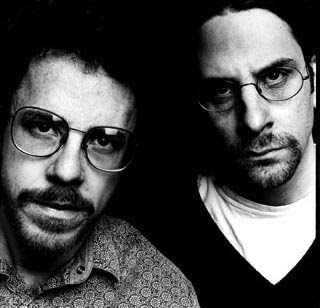
Look, I’m not going to sit here and tell you that the Coens aren’t talented filmmakers. They clearly have a vision – a unique eye, and they seem to have a pretty good grasp on the old “chase the guy with the bag of money” device. But I truly hate their writing. I will never ever get it.
To The White Sea is my Eli at the bachelor party moment for the Coens. I’ve heard about how good this script is many times, but when it scored so highly on the Reader List, I finally said, “I have to give this a shot.” So Wednesday I approached To The White Sea at the party, and had a conversation. Would the script prove my theory wrong? Or would I continue to lump the Coens in with Eli?

It’s March of 1945, roughly five months before the end of World War 2. A guy named “Muldrow” is supposedly the best B-29 gunner in his squadron. After we’re told a few times how awesome he is, he’s off on a mission to blanket Tokyo with more explosions than a Michael Bay movie (not including Bad Boys 2). As they’re flying along, their plane gets hit, he gets ejected, and falls, I think, right outside Tokyo. This coincides with the ending of all dialogue in the film, which I was really excited about, since it made a 90 page screenplay read like it was 180.
For reasons I’m still trying to grasp, we inexplicably flashback to Muldrow in Alaska(?) with a bunch of snow dogs. Neither Cuba Gooding Jr. or Paul Walker is nearby, so when Muldrow’s hands get a little chilly, he slices one of the dogs in half and shoves his hands inside to keep warm. I don’t know about you but I love me some dog killers. I was really warming up to this character.
Back in the present, Michael Vick wakes up, seemingly okay after the fall, and must now find a way out of Tokyo without being seen or killed. A few pages after the wonderful dog murdering scene, he slices the throat of an innocent civilian and steals his clothes and hat, which he then hides under so people won’t see that he’s American.
He then wanders through Tokyo and its outskirts – though it’s never clear to me where he’s planning to go, as the last time I checked, Japan was an island. In the draft I read, there were occasional pages that had been omitted. And I suppose this could’ve been explained in one of them, but I considered these deleted pages to be more a gift from God, a tiny favor from him to shorten my read. But even God himself could only do so much. Every endless page was hell. In fact, I started to wonder who was going to survive longer. Me or this character.
Muldrow continues to sneak around Japan, eventually finding his way into a house and murdering an old blind man. He also bludgeons and beats to death a goat, rips apart some birds, and if that isn’t enough animal death for you, a cute cub bear gets torn apart later. By this point I had broken out the pom-poms, such was my rooting interest for this wonderful man. Unfortunately, Muldrow never finds that deaf school of children to massacre. I guess we can always hope for a sequel.
There’s a big ironic moment when American bombers fly over and start bombing the very city he now finds himself in. Except I was less focused on the irony and more concerned about the bomber’s errant aim. I knew if they got him, the script would be over. Or, at least, I hoped it would. But alas, the idiots kept missing. I guess they shoulda hired Michael Bay.
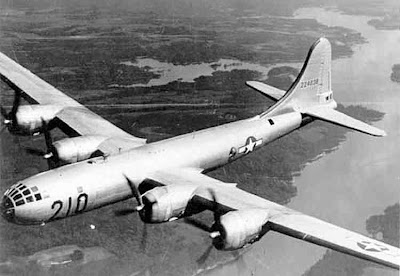
Even with it being only a couple of days since I read the script, I can’t really remember the end, other than I was bored to tears. I do remember him getting captured though, I think. And maybe almost dying. Alas, for those kinds of details you’ll have to carve out four hours of free time for yourself. Cause yes, it takes that long to read. (I know forgotten Egyptian cave languages that read faster than this)
Um, is there a movie in here? I suppose so, though I thought it woulda been way cooler if it was about an army official crashing in Hiroshima who had knowledge that the atom bomb was about to be dropped there in an hour or something. Now that’s a movie I’d wanna see. Hmm, maybe I’ll pitch it to Eli.
[x}What the hell did I just read?
[ ] barely kept my interest
[ ] worth the read
[ ] impressive
[ ] genius
What I learned: Having your main character kill a lot of animals will make him extremely likable. Kill as many animals as possible always in scripts. Puppies, chipmunks, bunnies, and baby deer are preferable.
In the spirit of fairness, I decided to give a friend of mine, Aaron Coffman, who’s a great screenwriter himself and a huge fan of To The White Sea, a chance to offer his thoughts on the script. Obviously, he’s wrong, but I’ll let him talk anyway. :)
When Carson first hinted that TO THE WHITE SEA may receive a ‘trash’ rating, I politely demanded the chance to offer a counter review, for I, like many of you, rather enjoyed the script.
A couple years ago, when a friend sent me the Coen Brother’s adaptation of the James Dickey novel, I tore into it, smiling at the sandpapered words first spoken by a hardened Colonel:
Fire. We are going to bring it to him.
Like the opening of PATTON, a commanding officer stands before his men, issuing orders that not only asks them to be absolutely brutal to the enemy, but to their enemy’s families and to their way of life. He’s not just asking his men to make the other poor bastard die for his country, he’s demanding they mutilate that country in the process.
…we’re going to put it in his dreams. Whatever heaven he’s hoping for, we’re fixing to make a hell out of it… no ammo, no gunners. All bombs. All payload. All fire.
And so begins TO THE WHITE SEA.
The opening image of a sea bird, flying against the bluest of skies, suddenly overtaken by the thunderous roar of a B-29 speaks volumes about what the script will set out to achieve. The constant battle between nature and man coarses throughout the eighty-nine page script.
The year is 1945. The war in the pacific is violently inching closer to an end. We meet Muldrow, the tail-gunner of a B-29, preparing for the hunt — or in this case, a bombing raid over Tokyo. The crews are told that in a few days the wooden city will be firebombed, but before that, regular bombs will have to do.
It’s on the great hunt that Muldrow’s plane is shot down and he is the lone surivor to jump from the plane’s gutted husk and make it safely to the ground. The only problem is that he’s in Tokyo, and in a matter days the entire place will be hit with white phosphorous and napalm.
And here is where the script started to win me over. In any other circumstance the plot of the film would use the firebombing as a ticking-clock. The script would become about Muldrow trying to escape before the American bombers return. He’d surely have to kidnap a Japanese citizen, but by the end of it they’d come to understand each other, and the Japanese captive would sacrifice himself so that Muldrow could flee to safety.
But not here. After spending the night in a construction vehicle, Muldrow starts North, where he can escape into the Aleutians, and by page thirty-four, Tokyo is on fire. Clearly this script isn’t as interested in standard conventions. There will be no Japanese captive with whom he can share stories of his past; nor will his captive-turned-friend be around to save his life.
Through a series of short flashbacks, done with some of the more interestingly executed transitions I’ve read, we learn about Muldrow’s past. We see him, years before, steering sled dogs through the Alaskan wilderness. When he tries to untie a frozen knot, Muldrow loses his gloves in the snow, and with the night quickly approaching, and unable to start a fire with his frozen hands, Muldow takes one of the sled dogs behind a mound, slices it open, and sticks his hands inside for warmth.
It is a scene that not only develops who Muldrow is as a character, but also the overall theme as well. Through his actions we see that Muldrow can and will to do whatever it takes to survive, and do it without any hesitation. The scene also begins to establish the thematic element of caged animals. Much like in RAGING BULL, when Jake LaMotta is thrown in prison and begins to bash his head against the cement wall, screaming that he’s an animal, here to we start to get a feeling that Muldrow himself has been caged, and that now the animal has been set free.
As Muldrow makes his escape, many might be put off by brutality in which Muldrow kills. However, I would counter by saying each murder allows him to find a way to survive.
He kills a construction worker for his clothes so that he can get out of his flight suit. During the firebombing of Tokyo he kills a man his size so that he can get out of his combat boots which clearly would give him away.
In one of my favorite sequences of the script, Muldrow kills a man who feeds a flock of swan in a pool outside a house. The murder seems unnecessary at first because even though he does eat the swan (the one which fought back), it’s unclear why he clubs a handful of the birds to death. We see him plucking the feathers, shoving them into a bag and then setting out again, and yet the question as to what he’s up to isn’t made clear. Later, when he discovers a blind man’s house, he waits for the caregiver to leave, then sneaks in. He quickly goes through the house, searching for something, ignoring the blind man. The blind man, realizing an intruder is in the house grabs a blade and nearly kills Muldrow before he himself is dispatched rather violently.
It’s the first time Muldrow has come upon a person who he doesn’t kill on sight, simply because the man can do him no harm. He can’t tell the authorities that Muldrow is an American. It’s only after the man attacks that Muldrow kills him. The sequence comes to an end as we realize why Muldrow came into the house. He uses a needle and thread to sew the swan feathers into his jacket to add insulation. It’s going to be cold on his trip, and again survival drives him.
To cover his tracks Muldrow sets the house on fire, but stops to let a song bird out of it’s cage. Once again the use of caged animals comes into play. Unlike Muldrow, though, the song bird flaps about the burning room only to return to its cage to await certain death.
When a small tribe takes him in, the looming threat that he might have to kill them all hangs heavy over the sequence and drives up the tension. During a celebration, two caged bear cubs are brought before Muldrow. The villagers kill one in a ritualistic manner. Later that night, on his way out of the village, Muldrow kills the man in charge, then sets the remaining cub free. It’s an interesting moment because we’re left to wonder if Muldrow did so to cover his tracks, or if he felt an animalistic need to free the caged bear. He doesn’t kill the entire village, which seems like something he’d do if his motive was to cover his tracks. Instead, he kills the man who allowed the bear cub to be slaughtered in its cage. Once the murder has occurred, and the bear has been set free, Muldrow’s own sense of survival kicks in and he murders several more tribe members on the edge of town to make it appear as though the bear cub was responsible.
[**major spoiler below**]
When he finally makes it north, Muldrow encounters another man, who shows him his prized hawks. During a trek through the forest, as the hawk flies high above him, Muldrow is shot and killed by soldiers as they stalk through the snow. It’s not made clear if they were after him specifically, but they’re dressed in white camo to disguise them in the snow, and we get the feeling that they too were on a hunt.
As Muldrow lies dying, he watches the hawk above him, in the blue sky, like the bird we saw in the first moments of the script. Muldrow’s voice echos the words:
I was in the place I tried to get. I was in it and had it. And will be everywhere in it from now on.
And so it is that Muldrow, once a caged animal, returns to nature from which he was born.
What I learned: This isn’t going to be everyone’s cup of tea. This is clearly written by two people who have never really been interested in the standard conventions of a Hollywood story. The fact that the font is in Times New Roman will make some feel as though they’re reading a book, however, I think writer’s can take some important things from it. Without dialogue or a high concept plot to push the story forward, the writer’s must focus on theme. Seeing such a thing on display here might help you incorporate that element into your own scripts in a more powerful way.



